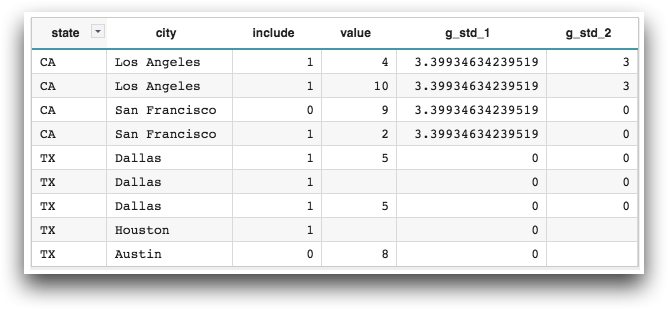g_std(G;S;X)
Returns the population standard deviation of values within a given group.
Function type
Vector only
Syntax
g_std(G;S;X)Input
| Argument | Type | Description |
|---|---|---|
G |
any | A space- or comma-separated list of column names Rows are in the same group
if their values for all of the columns listed in If If any of the columns listed in |
S |
integer | The name of a column in which every row evaluates to a 1 or 0, which determines
whether or not that row is selected to be included in the calculation If
If any of the values in
|
X |
any numeric type | A column name N/As in |
Return Value
For every row in each group defined by G (and for those rows where
S=1, if specified), g_std returns
a decimal value corresponding to the standard deviation of the values in the column listed
in X that are in the same group as that row.
If all values for a particular group are N/A, the result is N/A.
sqrt(N/(N-1))
where N is the sample size.
Alternatively, use the function
g_std_s(G;S;X).Sample Usage
<base table="pub.doc.samples.ref.func.g_func_sample_usage"/> <willbe name="g_std_1" value="g_std(state;include;value)"/> <willbe name="g_std_2" value="g_std(state city;include;value)"/>

